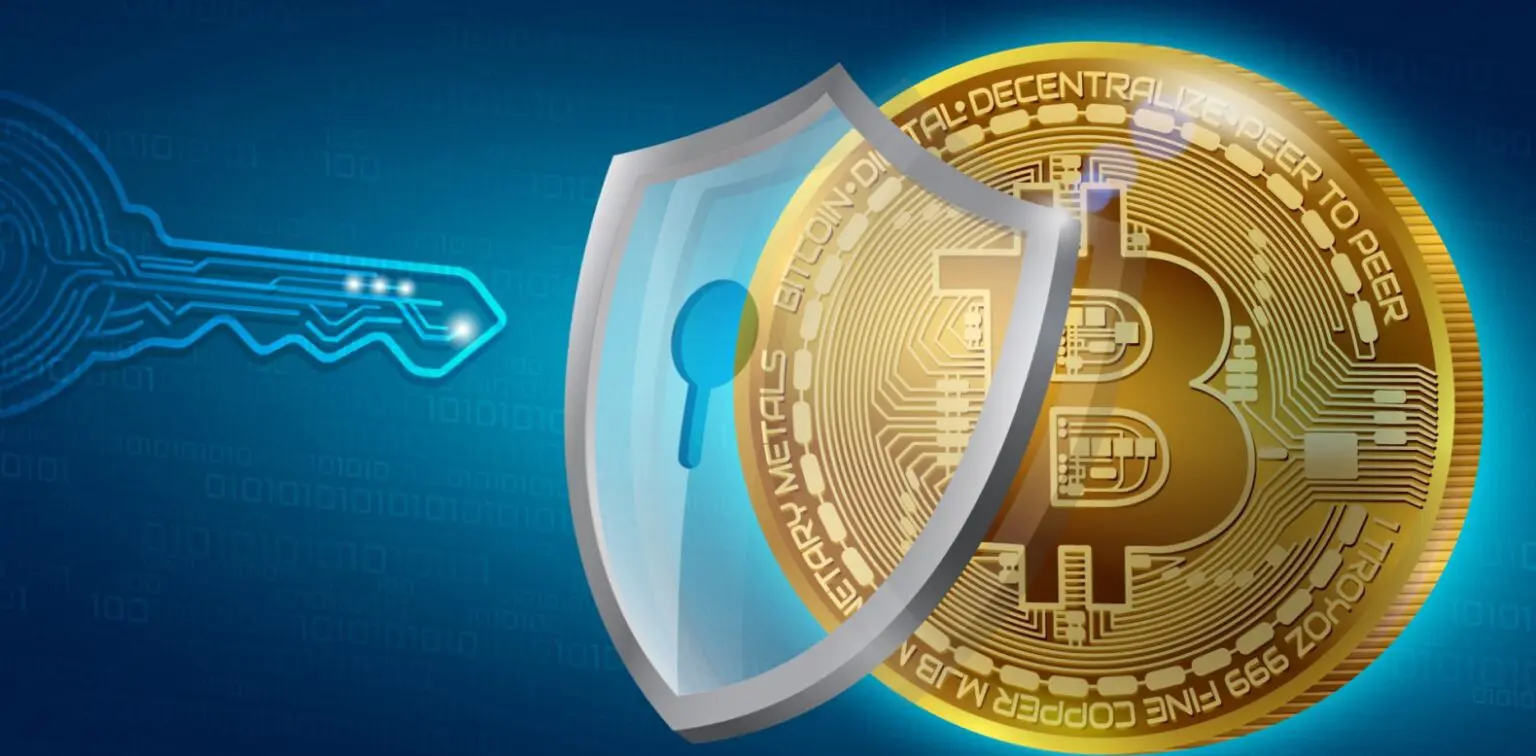The world of cryptocurrency has revolutionized digital transactions, but it has also created new opportunities for financial crimes. When Bitcoin transactions go wrong, victims need professional bitcoin forensic investigation services to trace stolen funds, investigate fraud, and recover lost assets. These specialized investigative services combine.
Cutting-edge blockchain analysis technology with traditional forensic accounting methods to uncover the truth behind cryptocurrency crimes. Whether you’re dealing with investment scams, ransomware attacks, or exchange hacks, expert bitcoin forensic investigation services provide the technical expertise and legal support necessary to pursue justice and asset recovery in the complex world of digital currencies.
What Are Bitcoin Forensic Investigation Services
Bitcoin forensic investigation services represent a specialized field of digital forensics focused on analyzing cryptocurrency transactions, tracing fund movements, and investigating crimes involving Bitcoin and other digital assets. These services employ advanced blockchain analysis tools and investigative techniques to follow the digital trail left by cryptocurrency transactions.
Unlike traditional financial investigations, Bitcoin forensics requires deep technical knowledge of blockchain technology, cryptographic principles, and the various methods criminals use to obfuscate their digital tracks. Professional investigators in this field must understand how Bitcoin wallets work, how transactions are recorded on the blockchain, and how to identify patterns that reveal criminal activity.
The complexity of Bitcoin transactions makes professional forensic services essential for law enforcement agencies, legal firms, insurance companies, and individuals who have fallen victim to cryptocurrency crimes. These investigators can trace Bitcoin through multiple wallets, exchanges, and mixing services to identify the ultimate destination of stolen funds.
Types of Cases Requiring Cryptocurrency Forensic Services
Investment Fraud and Ponzi Schemes
Bitcoin investment fraud has become increasingly sophisticated, with criminals creating elaborate schemes that promise unrealistic returns. Forensic investigators help victims by tracing the flow of Bitcoin from initial investments through various wallet addresses to identify where funds ultimately ended up. This investigation process often reveals complex networks of wallet addresses controlled by the same criminal organization.
Professional investigators can analyze transaction patterns to determine if an investment opportunity was legitimate or if it followed the classic patterns of a Ponzi scheme. By examining the blockchain data, they can identify how much Bitcoin was collected from victims versus how much was actually invested in legitimate activities.
Ransomware Attack Investigation
Ransomware attacks have become one of the most visible uses of Bitcoin in criminal activities. When organizations fall victim to ransomware, bitcoin forensic investigation services can trace the payment of ransom demands and potentially identify the attackers. These investigations often involve analyzing Bitcoin addresses provided in ransom notes and following the subsequent movement of funds.
Investigators can determine if ransom payments were successful, how the funds were laundered, and whether the same Bitcoin addresses have been used in other ransomware campaigns. This information is crucial for both law enforcement efforts and for organizations trying to recover from attacks.
Exchange Hacks and Theft
Cryptocurrency exchanges have been frequent targets of hackers, resulting in the theft of millions of dollars worth of Bitcoin. When exchanges are compromised, forensic investigators work to trace the stolen Bitcoin and identify the methods used by the attackers. This process involves analyzing the blockchain to determine how funds were moved from the exchange’s wallets to attacker-controlled addresses.
These investigations can reveal whether exchange employees were involved in the theft, how security systems were compromised, and where the stolen Bitcoin ultimately ended up. This information is essential for insurance claims, legal proceedings, and efforts to recover stolen assets.
Money Laundering Operations
Bitcoin’s pseudonymous nature makes it attractive for money laundering operations. Forensic investigators can analyze transaction patterns to identify money laundering schemes and trace the source of illicitly obtained Bitcoin. These investigations often involve following Bitcoin through multiple layers of transactions designed to obscure its origin.
Professional investigators use sophisticated analysis tools to identify patterns that suggest money laundering activity, such as the use of mixing services, frequent small transactions, or unusual transaction timing patterns. This analysis can provide crucial evidence for law enforcement and compliance investigations.
Advanced Techniques Used in Bitcoin Forensic Analysis

Blockchain Analysis and Transaction Mapping
Modern bitcoin forensic investigation services employ sophisticated blockchain analysis tools that can process vast amounts of transaction data to create detailed maps of Bitcoin movement. These tools can identify connections between seemingly unrelated wallet addresses and reveal the true scope of criminal operations.
Investigators use these tools to create visual representations of Bitcoin flows, making it easier to understand complex transaction patterns and identify key players in criminal schemes. This analysis can reveal hub wallets that serve as central points in money laundering operations or identify wallets that consistently receive funds from multiple fraud victims.
Clustering and Address Attribution
One of the most powerful techniques in Bitcoin forensics is the ability to cluster related addresses and attribute them to specific entities or individuals. By analyzing transaction patterns, timing, and other metadata, investigators can determine which addresses are controlled by the same person or organization.
This clustering technique allows investigators to see beyond the pseudonymous nature of Bitcoin and identify the true scope of criminal operations. It can reveal that hundreds of apparently separate transactions were actually controlled by a single criminal organization, providing crucial evidence for prosecution efforts.
Exchange and Service Integration
Professional forensic investigators maintain relationships with cryptocurrency exchanges and other service providers to obtain additional information about Bitcoin transactions. While blockchain data is publicly available, exchanges often have additional information about their users that can help identify the people behind specific wallet addresses.
This integration allows investigators to potentially identify the real-world identities behind Bitcoin addresses, providing the crucial link between blockchain transactions and actual individuals. However, this process must be conducted carefully to ensure compliance with privacy laws and exchange policies.
Pattern Recognition and Machine Learning
Advanced bitcoin forensic investigation services increasingly employ machine learning algorithms to identify patterns in Bitcoin transactions that might indicate criminal activity. These systems can analyze thousands of transactions simultaneously to identify unusual patterns or connections that human investigators might miss.
Machine learning systems can be trained to recognize the signatures of specific types of criminal activity, such as ransomware payments or investment fraud schemes. This technology helps investigators quickly identify potentially suspicious activity and focus their detailed analysis on the most promising leads.
The Investigation Process From Initial Analysis to Final Report
Initial Case Assessment
When clients contact bitcoin forensic investigation services, the process begins with a comprehensive case assessment. Investigators work with clients to understand the nature of the alleged crime, gather all available evidence, and determine the scope of the investigation required.
During this initial phase, investigators collect wallet addresses, transaction IDs, and any other relevant information about the Bitcoin transactions in question. They also work to understand the timeline of events and identify any potential witnesses or additional evidence sources.
Evidence Collection and Preservation
Professional Bitcoin forensic investigators follow strict evidence collection and preservation protocols to ensure that their findings will be admissible in legal proceedings. This involves creating forensic copies of digital evidence, maintaining detailed chain of custody records, and documenting all investigative steps.
The evidence collection process may involve analyzing computer systems, mobile devices, email accounts, and other digital sources that might contain relevant information about Bitcoin transactions. Investigators must ensure that all evidence is collected in a manner that preserves its integrity and admissibility.
Also Read: Noticias Bitcoin Latest cryptocurrency news and trends
Blockchain Analysis and Tracing
The core of any Bitcoin forensic investigation involves detailed analysis of blockchain data to trace the movement of funds. Investigators use specialized software tools to follow Bitcoin through multiple transactions, identify patterns, and map the flow of funds through various wallet addresses.
This analysis often reveals complex networks of transactions designed to obscure the trail of stolen or fraudulent funds. Investigators must be skilled at identifying these obfuscation techniques and following the true path of Bitcoin movement despite attempts to hide it.
Report Preparation and Expert Testimony
The final phase of bitcoin forensic investigation services involves preparing detailed reports that document the investigation process and findings. These reports must be clear, comprehensive, and suitable for use in legal proceedings or insurance claims.
Professional investigators are often called upon to provide expert testimony in court cases involving Bitcoin fraud or theft. They must be able to explain complex technical concepts in terms that judges and juries can understand, while maintaining the technical accuracy of their findings.
Legal and Regulatory Considerations in Bitcoin Forensics
Compliance with Privacy Laws
Bitcoin forensic investigators must navigate complex privacy laws while conducting their investigations. While blockchain data is publicly available, the process of linking Bitcoin addresses to real-world identities often involves personal data that is protected by privacy regulations.
Professional investigation services must ensure that their methods comply with relevant privacy laws such as GDPR in Europe or state privacy laws in the United States. This often requires careful planning and coordination with legal counsel to ensure that investigations are conducted lawfully.
Working with Law Enforcement
Many Bitcoin forensic investigations involve coordination with law enforcement agencies. Professional investigators must understand how to properly share information with law enforcement while protecting their clients’ interests and maintaining the integrity of their investigations.
This coordination often involves providing technical expertise to law enforcement agencies that may lack specialized knowledge of cryptocurrency forensics. Investigators must be prepared to educate law enforcement officers about Bitcoin technology while assisting with criminal investigations.
Court Admissibility Standards
For bitcoin forensic investigation services to be effective, their findings must be admissible in court proceedings. This requires following established forensic standards and maintaining detailed documentation of all investigative procedures.
Professional investigators must stay current with evolving legal standards for digital evidence and ensure that their methods meet the requirements for admissibility in the jurisdictions where they operate. This often requires ongoing training and certification in digital forensics standards.
Choosing the Right Bitcoin Forensic Investigation Provider
Technical Expertise and Experience
When selecting bitcoin forensic investigation services, it’s crucial to choose providers with demonstrated technical expertise in blockchain analysis and cryptocurrency investigations. Look for investigators with relevant certifications, training, and a track record of successful cases.
The ideal forensic provider should have experience with the specific type of case you’re dealing with, whether that’s investment fraud, ransomware, or exchange theft. They should also have access to the latest blockchain analysis tools and techniques.
Legal and Compliance Knowledge
Professional Bitcoin forensic investigators must have a thorough understanding of the legal and regulatory environment surrounding cryptocurrency investigations. They should be familiar with privacy laws, evidence collection standards, and court admissibility requirements.
Your chosen provider should be able to work effectively with legal counsel and law enforcement agencies when necessary. They should also understand the compliance requirements that may apply to your specific situation or industry.
Communication and Reporting
Effective communication is essential for successful Bitcoin forensic investigations. Your chosen provider should be able to explain complex technical concepts in clear, understandable terms and provide regular updates on investigation progress.
The final investigation report should be comprehensive, well-organized, and suitable for your intended use, whether that’s legal proceedings, insurance claims, or internal compliance purposes. Professional investigators should also be prepared to provide expert testimony if needed.
The Future of Bitcoin Forensic Investigation Services

Technological Advancements
The field of Bitcoin forensics continues to evolve rapidly as new technologies and techniques are developed. Artificial intelligence and machine learning are playing increasingly important roles in analyzing complex transaction patterns and identifying criminal activity.
Future developments may include more sophisticated privacy-preserving investigation techniques, better integration with traditional financial forensics, and improved tools for analyzing privacy-focused cryptocurrencies that are designed to be more difficult to trace.
Regulatory Evolution
As cryptocurrency adoption continues to grow, regulatory frameworks around Bitcoin forensics are likely to evolve. This may include new standards for evidence collection, updated privacy regulations, and clearer guidelines for cooperation between investigators and law enforcement.
Professional bitcoin forensic investigation services must stay ahead of these regulatory changes to ensure their methods remain compliant and effective. This requires ongoing education and adaptation of investigative procedures.
Industry Standardization
The Bitcoin forensics industry is gradually moving toward greater standardization of techniques, certification requirements, and reporting standards. This standardization will help ensure the quality and reliability of forensic investigations while making it easier for clients to evaluate different service providers. Professional organizations and certification bodies are developing standards that will help establish Bitcoin forensics as a mature discipline within the broader field of digital forensics.
Cost Considerations and Investment Protection
Understanding Investigation Costs
Bitcoin forensic investigations can vary significantly in cost depending on the complexity of the case, the amount of analysis required, and the experience level of the investigators involved. Simple cases involving straightforward transaction tracing may cost less than complex investigations involving multiple criminal organizations and sophisticated obfuscation techniques.
When considering the cost of bitcoin forensic investigation services, it’s important to weigh the potential value of recovered assets against the investigation expenses. In many cases, successful investigations can lead to significant asset recovery that far exceeds the cost of the forensic analysis.
Insurance and Recovery Options
Many businesses and individuals have insurance coverage that may help offset the costs of Bitcoin forensic investigations. Cyber insurance policies increasingly include coverage for cryptocurrency theft and may cover the costs of professional forensic investigations.
Some forensic investigation firms offer contingency-based pricing models where fees are tied to successful asset recovery. This can make professional investigations more accessible to victims who might otherwise be unable to afford comprehensive forensic analysis.
Conclusion
Bitcoin forensic investigation services play a crucial role in combating cryptocurrency crime and helping victims recover stolen assets. As the use of Bitcoin and other cryptocurrencies continues to grow, the demand for professional forensic investigation services will only increase.
Whether you’re dealing with investment fraud, ransomware attacks, exchange theft, or other cryptocurrency crimes, professional bitcoin forensic investigation services provide the technical expertise and legal support necessary to pursue justice and asset recovery. The complex nature of blockchain technology and cryptocurrency transactions makes professional investigation essential for anyone serious about recovering stolen Bitcoin or pursuing legal action against cryptocurrency criminals.


